#psychiatric nursing
Text
Tess Kroeker - Nursing Professional | Youtu
youtube
Tess Kroeker, an accomplished nurse educator, and advocate, strives to promote compassionate care and tackle complex social issues in healthcare.
2 notes
·
View notes
Text

#mental health#student nurse#psych nurse#studyblr#nursing#health care#clinical placement#psychiatric nursing#studyspo
5 notes
·
View notes
Text
The Digital Dilemma: Navigating The Pros And Cons Of Virtual Medical Scribes

As technology continues transforming the healthcare industry, virtual medical scribe have emerged as a valuable tool for improving patient care and efficiency. By automating administrative tasks such as note-taking and documentation, virtual medical scribes can free up healthcare professionals to focus on providing personalized care to patients. However, as with any technology, virtual medical scribes raise concerns about data security, patient comfort, and implementation costs. Successfully navigating the digital dilemma of virtual medical scribes requires careful consideration of the benefits and drawbacks, addressing data security concerns, planning for technical issues, addressing patient concerns, and investing in training and infrastructure.
Pros Of Virtual Medical Scribes
Increased Efficiency: Healthcare professionals are often burdened with administrative tasks, such as note-taking and documentation, which can take away from time spent on patient care. By delegating these tasks to virtual medical scribes, healthcare professionals can free up their time and focus on providing personalized care to patients.
Improved Accuracy: Virtual medical scribes are trained to capture all the relevant details of a patient's medical history, which can help to improve the accuracy of medical records and diagnoses. In the end, this may result in improved patient outcomes and lower medical expenses.
Enhanced Patient Care: By allowing healthcare professionals to focus on patient care, virtual medical scribes can improve patient care. Patients may feel more at ease knowing their healthcare professional has more time to spend with them and can provide personalized attention.
Cost Savings: By reducing the time spent on administrative tasks, virtual medical scribes can help lower healthcare costs. This can be especially beneficial for smaller healthcare practices that may not have the resources to hire additional staff.
Cons Of Virtual Medical Scribes
Data Security Concerns: Virtual medical scribes may have access to sensitive patient information, which raises concerns about data security and privacy. Healthcare professionals must ensure that appropriate safeguards are in place to protect patient data and comply with regulations such as HIPAA.
Technical Issues: Virtual medical scribes rely on technology to function, which means technical glitches or malfunctions could disrupt patient care. Healthcare professionals must have a contingency plan to address technical issues and ensure that patient care is not compromised.
Lack of Personal Touch: Some patients may prefer interacting directly with healthcare professionals rather than relying on a virtual intermediary. This can be especially true for patients who may be uncomfortable with technology or have difficulty communicating through a virtual medium.
Training and Implementation Costs: Implementing a virtual medical scribe program can be costly and requires significant training and infrastructure. Healthcare professionals must carefully weigh the costs and benefits of such a program and ensure that they have the resources necessary to implement and maintain it successfully.
Navigating the Digital Dilemma
When implementing a virtual medical scribe program, navigating the digital dilemma requires careful consideration of several vital factors. These include assessing the benefits and drawbacks of using virtual medical scribes, addressing data security concerns, planning for technical issues, addressing patient concerns, and investing in training and infrastructure.
Recommended Reading : The Future of Healthcare: How AI-Powered Medical Scribes Are Changing The Game
Assessing the Benefits and Drawbacks
Before implementing a virtual medical scribe program, healthcare professionals must carefully weigh the benefits and drawbacks of using this technology. While virtual medical scribes can improve efficiency, accuracy, and patient care, they also raise concerns about data security, patient comfort, and implementation costs. By conducting a cost-benefit analysis and considering the unique needs and resources of their healthcare setting, healthcare professionals can determine whether virtual medical scribes are the right choice for their practice.
Addressing Data Security Concerns
One of the primary concerns associated with virtual medical scribes is the security and privacy of patient data. Healthcare professionals must ensure that appropriate safeguards are in place to protect patient information and comply with regulations such as HIPAA. This may include implementing secure communication platforms, restricting access to patient data, and providing training on data security best practices.
Planning for Technical Issues
Virtual medical scribes rely on technology to function, meaning technical glitches or malfunctions could disrupt patient care. Healthcare professionals must have a contingency plan to address technical issues and ensure that patient care is not compromised. This may include having backup technology available, providing technical support, and training staff on troubleshooting common problems.
Addressing Patient Concerns
Some patients may be uncomfortable using virtual medical scribes or prefer to interact directly with healthcare professionals. Healthcare professionals must address these concerns by providing clear communication about the purpose and benefits of virtual medical scribes, offering alternative options for patients who prefer direct interaction, and ensuring that patients are comfortable with the technology before using it in their care.
Investing in Training and Infrastructure
Successfully implementing a virtual medical scribe program requires significant training and infrastructure. Healthcare professionals must invest in training staff on how to use the technology, establishing protocols for communication and documentation, and ensuring that the necessary technology and infrastructure is in place. This may include investing in secure communication platforms, providing ongoing training and support, and establishing policies and procedures for using virtual medical scribes in patient care.
In conclusion, navigating the digital dilemma of virtual medical scribes requires careful consideration of the benefits and drawbacks, addressing data security concerns, planning for technical issues, addressing patient concerns, and investing in training and infrastructure. By carefully weighing the costs and benefits and implementing appropriate safeguards and protocols, healthcare professionals can successfully leverage virtual medical scribes to improve patient care and efficiency.
Conclusion
Virtual medical scribes offer healthcare professionals a valuable tool for improving patient care and efficiency, but their implementation requires careful consideration of several key factors. Healthcare professionals must assess the benefits and drawbacks, address data security concerns, plan for technical issues, address patient concerns, and invest in training and infrastructure to successfully navigate the digital dilemma of virtual medical scribes. By doing so, healthcare professionals can improve patient outcomes and reduce costs while ensuring patient data is secure and patient comfort is prioritized. Ultimately, the decision to use virtual medical scribes should be guided by a commitment to providing high-quality, personalized care to patients.
#s10.ai#medical scribe#medical scribing#medical service#psychiatric nursing#robot medical service#s10.ai robot
0 notes
Text

#Healthcare#Women’s Health Nursing#Digital Healthcare#Critical Care Nursing#Neuroscience Nursing#Psychiatric Nursing#Occupational Healthcare
1 note
·
View note
Text
More great content from REV Med [instagram]
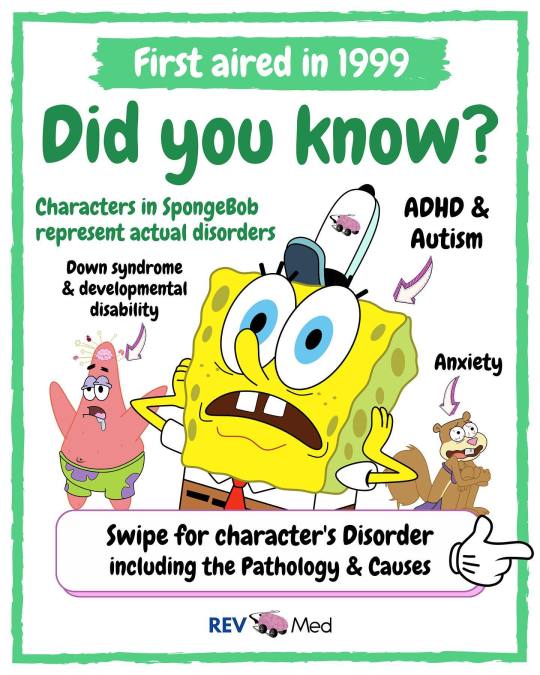
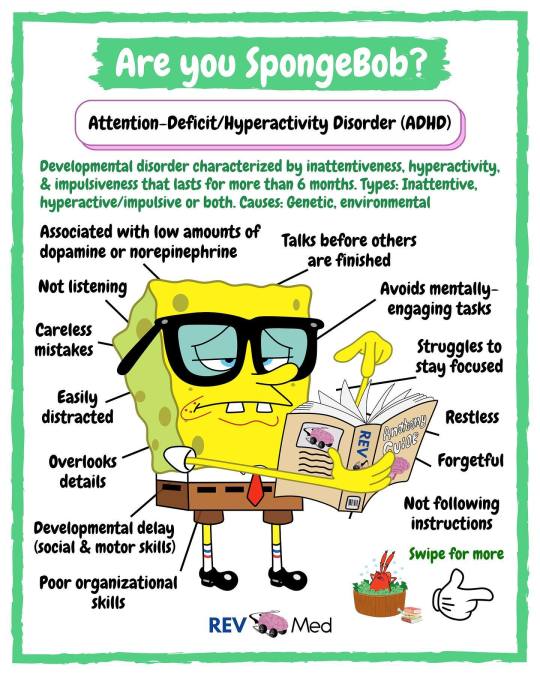
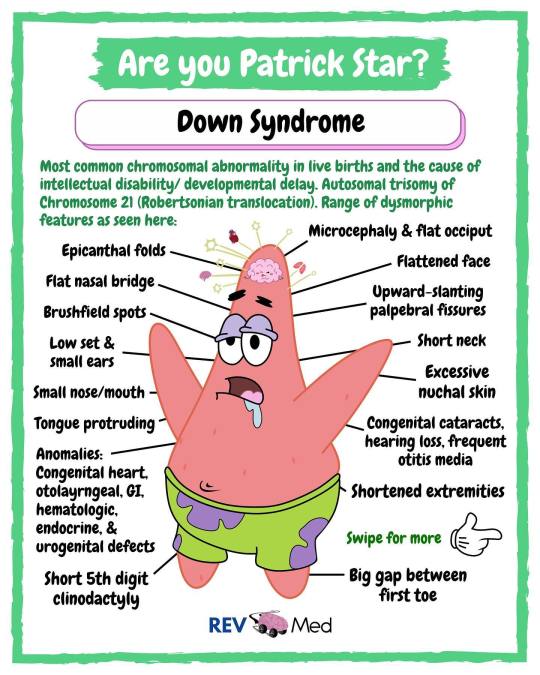
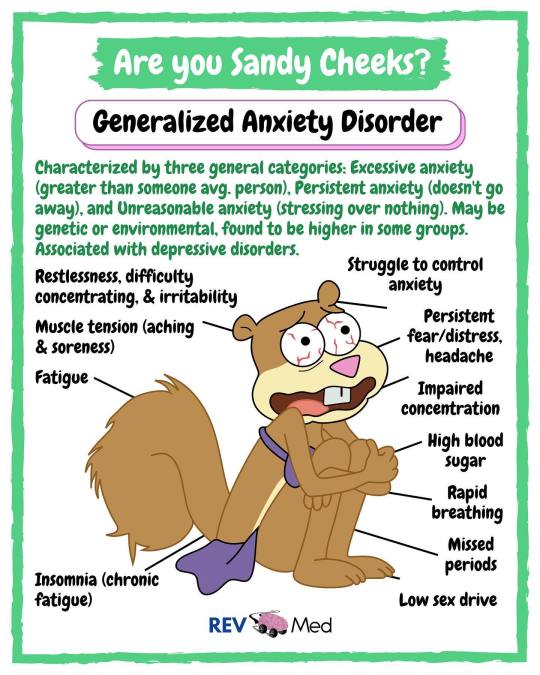
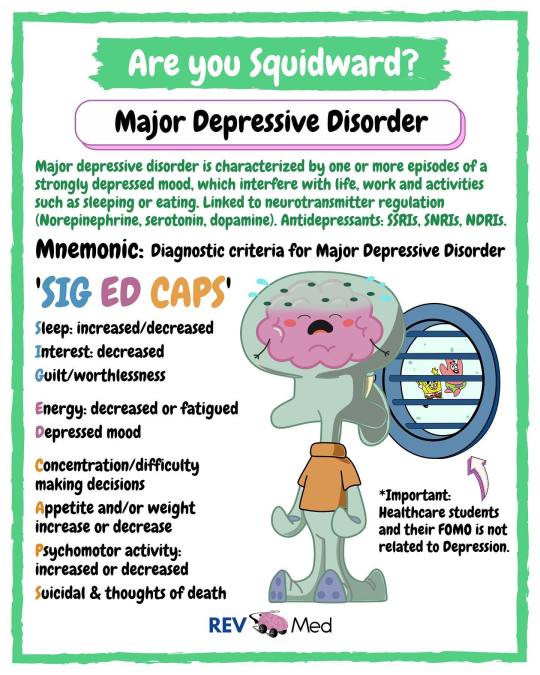


#medicine#medical#nurse#emt#public health#mental health#healthcare#mental disorder#mental illness#psychology#Psychiatric#Psychiatry#mood#bipolar#depression#ocd#narcissistic personality disorder#autism#iq#spongebob#adhd
120 notes
·
View notes
Text
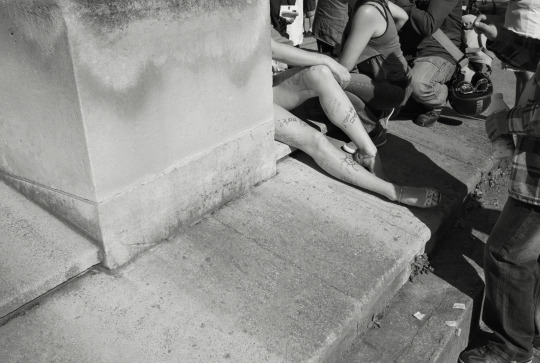
2011 Paris
#2011#paris#nurse#psychiatric#strike#photography#leica#photooftheday#photographylovers#streetphotography#blackandwhite#original photographers#pierre wayser
9 notes
·
View notes
Text
for a while now, I've really been doubting my career choices with nursing. I know a lot of it is burn out and depression, and being so overwhelmed between work, school, and clinical, that I didn't have time to breathe. I was in the hospital/on campus for 60 hours a week last semester, and that's not counting the time I had to study outside of that. It was awful. I quit my job because of it, I was almost involuntarily committed because of it.
But the scariest part for me has been how much I've hated clinical. It makes me miserable. And that's terrifying, because once I graduate? That's what I'm going to be doing for the rest of my life. So if I already hate it now, what does that mean for my future?
Sometimes, though... Sometimes I'll have a clinical that is just so good, it reminds me of why I'm doing this. Why I'm putting myself through the pain and suffering of becoming a nurse, which is honestly one of the hardest careers a person can have. It's mentally, physically, and emotionally exhausting. It destroys your body and your mental health. Most of the time it's thankless. It doesn't pay nearly enough for what we go through.
Despite all of the reasons there are not to become a nurse, there are some patients that will remind you why it's all worth it anyway.
Last week, I had a crotchety old bitch of a patient. She had been in the hospital for 10 days, was refusing all of her treatments, screamed at anyone that came in her room, and demanded dilaudid around the clock, despite having no injuries to justify it. Everyone hated her. Her own nurses went in her room as little as possible; I think in the entire 12 hours I was there, her nurse spent maybe a total of 20 minutes in her room. I was in there for hours. A couple minutes at a time in the beginning just so she could warm up to me. Then I spent 2 straight hours at her bedside just talking to her. Letting her tell me her life story. Which was tragic, of course, and no wonder she was so run down and bitter and wanted to get high off narcotics. She was miserable, lonely, and in chronic pain from a body that was deteriorating around her.
So I spent as much time with her as possible. Sure enough, she didn't ask me for any pain medications a single time, once she realized she could trust I was going to look after her. I Explained her medications and her treatments, and the reasoning behind them. I offered to reach out to out chaplain when I noticed she was hyper focused on some televangical broadcast. I got her to call her son to come visit her. I got her to agree to take her medications and allow us to take blood sample for her labs, which were days overdue. I got her up and working with physical therapy so she could start walking again.
By the end of the day, that patient loved me. Not a single complaint all day, she wasn't screaming down the halls and cursing everyone's existence. She was still crotchety and mean in that way old hillbillies are, but she wasn't angry. She wasn't lashing out. She was finally being cooperative. All because I took the time to talk to her and offer her company.
Tonight, I had a shift in our mental health unit. There was a patient who I noticed was very withdrawn and avoiding everyone, mostly just standing in a corner at the end of the hall, by a window. I went down and talked to him. Kind of stilted at first, but slowly he opened up to me. I really only meant to talk for a few minutes, mostly for my own sake, to get used to interacting with mental health patients like this.
Instead, we talked for hours. Nearly 3 hours straight at the start of the day alone, and then more throughout the day. My feet were killing me by the end of it, but it was completely worth it to see the way this poor guy came to life. We talked about everything from social topics like music and movies, to his medications and treatments, and how to manage his depression once he leaves. Something I was able to connect with him about on a personal level in a way his nurse hadn't, because I've been living with depression for a decade, I've been on antidepressants, and I understand. I think that was the point it clicked for him, when he really started reaching out to me, instead of answering when I prompted him. Because humans need connection and understanding.
By the end of the day he was talking freely and smiling nearly non-stop. We'd made plans for him to get back into an old hobby he hadn't touched in years, and he seemed genuinely excited to start it back up again. He was nearly bouncing in place when I went to say goodbye to him at the end of the night, and thanked me for talking to him all day. Even the staff nurses noticed the way his demeanor had completely changed.
Another patient (my actual patient for the night) started the day very combative. To the point she had to be redirected to her room (not locked up, just strongly encouraged to go and cool down). She was screaming at everyone, having some very serious and severe delusions. Same story; I talked to her throughout the day, little bits whenever she was feeling calm. I noticed she had a tattoo from an old semi-niche XBox game I used to play, and we bonded over that. By the end of the shift she loved me. Kept asking me if I'd gotten lunch/dinner, made sure all the other patients on the unit got their snacks, told us all to get some rest once it was curfew for the unit (we had to stay another 2 hours) and said we could use the spare bed in her room if we needed. Which sounds really weird but coming from her was incredibly sweet. Again, total attitude change.
I am very cognizant of the fact that the way I approach my patient care is largely a privilege of still being a student. It's easy for me to stand at a patient's bedside for 2 hours straight and listen to her life story when I have nothing better to do, let alone 3 other patients to take care of. But that nurse didn't talk to her at all. Even when she was in the room, she dismissed everything the patient said. The mental health nurses? Most of their time is spent in the nursing station gossiping and messing on their phones. There's no reason for them not to put in the extra effort of spending time with their patients. And especially there, it can have such an impact.
All of that is to say, I love the relationships I'm able to build with my patients. It's so important for me to be able to connect with people like this, to make them feel seen and cared for and important. No one wants to be treated like an inconvenience, especially not while they're in the hospital, sick and hurt and exhausted and in pain.
Nights like these are why I'm going into this field. I love medicine and I always knew I would end up in the hospital, I've always wanted to be able to save someone's life. But I think now that I've grown up and I'm actually working with these patients, I've come to see not only how rewarding it is to save someone's life, but to nurture that life, too.
#cookie speaks#dont mind me i'm just feeling really sappy#im really proud of what i was able to accomplish with that patient today#he's going home tomorrow and i really hope he's able to do the things we talked about#i truly love being able to help people this way#i want to be the kind of nurse that people remember#i want my patients to feel taken care of and cared for#i dont have a single maternal bone in my body and i never thought i was much of a caretaker#but this is genuinely such a rewarding experience#i dont care how hard nursing is when I get to have days like these#I know it won't be nearly as easy once I start nursing for real#ill have so much more responsibility#but for now I'm going to take advantage of my ability to sit and talk with my patients for hours at a time#i think even if they aren't psychiatric patients#everyone wants to be heard#having someone's undivided attention makes you feel good#especially in this day and age where people are constantly talking over each other and distracted by their phones and never really present#in a conversation#so I always try to give that to others#i love therapeutic communication lol#one of my favorite parts of nursing#anyway
14 notes
·
View notes
Text

I did it, guys. I finished grad school this morning. Thank you sweet little 9lb 5 oz baby Jesus 😂
#grad school#masters of science in nursing#nontraditional student#800 practicum hours#psychiatric mental health nurse practitioner#ANCC boards here I come#so many letters after my name now
9 notes
·
View notes
Text

I know I talk a lot about issues within inpatient psychiatry and how they affect the patients (and this should frankly be the #1 priority), but I think how these issues affect the staff is important too. This paper goes into moral injury amongst psychiatric hospital staff in depth, and is the only systemic analysis I've been able to find on the topic.
Some quotes from staff members that I found particularly striking:
"The medicalisation approach of care for psychiatric patients has overlooked the principles of “care” in the context of nursing, and consequently the emphasis seems to have shifted more towards safety management. . ."
"What stops me from acting was I am part of a team . . . if I intervene in these situations I’m interfering with primary nursing, and I think I would be seen as splitting the team by taking the side of the patient."
"When I expressed my concern over what seemed like a blatant error in diagnosis, my instructor . . . who I held in really high esteem . . . just said “Docs don’t misdiagnose . . . there’s no misdiagnosing here,” and I was thinking, “Are you kidding me? Like, isn’t that against everything we’ve ever learned about critical thinking and looking at the specifics and questioning. . .?”"
"It’s not to be taken lightly when you put your hands on somebody. It’s wrong really. It’s like the opposite of therapeutic touch."
"I run to another ward when we hear the assault alarm and find a half-naked woman lying on the floor. As I understand it, the patient has “moved into top gear” and will be given an injection. . .. I’m distressed about the woman lying there half naked (why didn’t anyone think of covering her with a blanket?)"
Most of what the article discussed in the "implications for practice" section is about giving psychiatric healthcare workers more avenues to report immoral acts, along with trainings on how to deal with moral injury, but I have another takeaway. Both patients and staff are traumatized by this system. Why aren't we fundamentally changing something?
(Additionally, this system is perfect for burning out staff that have strong ethics and leaving the abusive staff to run things. So there's issues on both a systemic and individual level.)
#psychiatry#mental healthcare#inpatient psychiatry#moral injury#psychiatric abuse#abuse cw#public health#psychiatry critical#psychiatric nurse#psychiatric staff#mental health nurse#psych ward#psych hospital#tfw a cool epic paper came out JUST A FEW MONTHS AGO WOOOO#why is everyone not clambering over themselves to give this post notes. Surely there is something wrong with them and not me
12 notes
·
View notes
Text
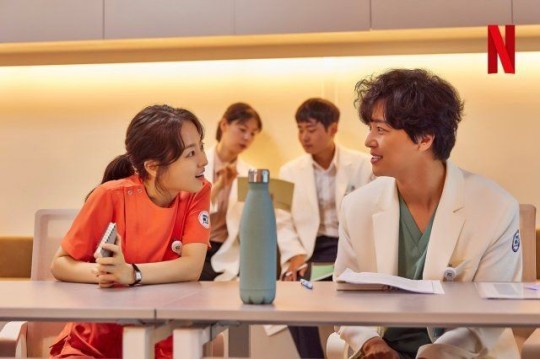

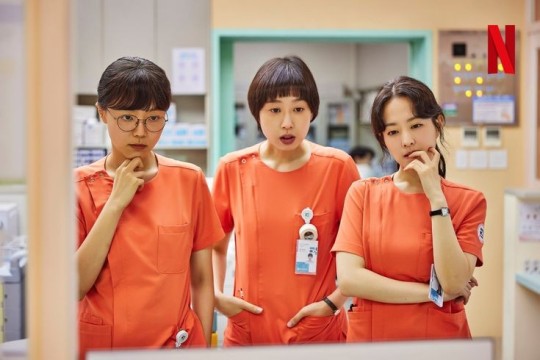
Kdrama: A daily dosis of sunshine
#south korea#korean#netflix#kdrama#a daily dosis of sunshine#psicology#psychiatric#mental health#romance#hospital#doctors#nurses#mental illness
7 notes
·
View notes
Text
Guys do we think I still have a chance of working in the medical field
#bolos wants to become a paramedic#or maybe a nurse or doctor#they say id work best as an advanced psychiatric nurse#so#🤤🤤🤤🤤
5 notes
·
View notes
Note
apparently i'm going with the crowd but you had me at nurse eddie for wip weekend!!
-dani/inairbinad (have i sent you an ask from my main before? can't remember. just in case 💜)
DANI HELLO!!! i am aware this is your main yes but also i am a big believer in better safe than sorry so i get it lmao
blah blah this snippet is a continuation of the previous two, here you go!
< PREV | NEXT >
Especially since a glance up ahead shows he's ended up walking right back to the ward he just left.
The one Eddie works in.
Great.
Taking a quick glance around, Steve notices a bathroom just down the hall from him and ducks inside. It's only got three stalls, which is thankfully small enough that Steve knows straight away he's alone in here. Not that he can rely on things staying that way, of course; this is a hospital.
Steve approaches the bathroom mirror and takes a good look at himself. He immediately grimaces, the bags under his eyes and flyaway strands of hair jumping out at him like neon signs proclaiming 'Look! This guy can't handle the pressure!'
Okay, Harrington, says a voice in his head that sounds distinctly like Robin, got any other zingers from your emo Notes app poetry? Steve takes a moment to clip the sample bag he’s holding to his ID badge, knowing he’ll want his hands free for this. Technically the sample bag is sealed, and the vials inside are sealed away from contamination, but Steve is absolutely not going to risk placing his blood samples on a random bathroom counter.
Make me write some of my WIPs! 🖋️
#charlie writes things#med student steve and nurse eddie au#steddie#steddie fic#steve harrington#robin lives rent free in his brain. as she should#she is also a med student in this! she's on the consult liaison psych rotation with nancy#CL psych = patients who are in hospital for medical reasons but need psychiatric review as well
10 notes
·
View notes
Text
Psychiatric Nursing Notes With Example
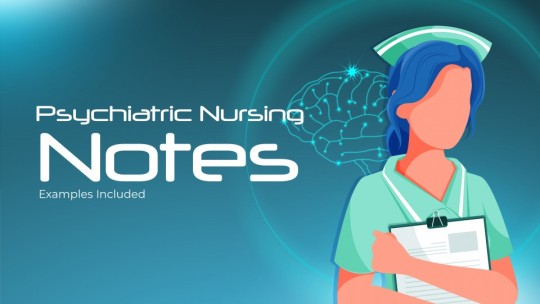
As a mental health nurse, documenting your observations, assessments, and interventions is critical to providing quality care to your patients. In this blog, we will explore the importance of psychiatric nursing notes, discuss their purpose and benefits, and provide an example to help you understand how to write them effectively. Whether you are a seasoned psychiatric nurse or new to the field, this guide will equip you with the knowledge and tools to create informative and accurate psychiatric nursing notes.
Section 1: Understanding The Importance Of Psychiatric Nursing Notes
Psychiatric nursing notes play a crucial role in the care and treatment of individuals with mental health conditions. These notes comprehensively record the patient's mental health status, assessments, interventions, and progress. Let's explore why psychiatric nursing notes are so important in mental health practice.
Communication And Collaboration:
Psychiatric nursing notes facilitate effective communication and collaboration among healthcare professionals involved in the patient's care. Nurses can share critical information with psychiatrists, psychologists, therapists, and other team members by documenting observations, assessments, and interventions. This interdisciplinary collaboration ensures that everyone involved is well-informed and can make informed decisions regarding the patient's treatment plan.
Continuity Of Care:
Psychiatric nursing notes provide a vital source of information for continuity of care. As patients receive care from various healthcare providers and across different settings, these notes serve as a reference point to ensure consistency and continuity in their treatment. They provide an overview of the patient's history, previous assessments, interventions, and progress, enabling healthcare professionals to understand the patient's journey and make informed decisions about their ongoing care.
Legal And Ethical Requirements:
Accurate and comprehensive psychiatric nursing notes fulfill legal and ethical requirements. These notes serve as documents that can be used for evidence in legal proceedings or disputes. They also adhere to ethical standards, ensuring patient confidentiality, privacy, and informed consent. Psychiatric nursing notes contribute to maintaining the trust and confidentiality of patients, which is crucial in mental health practice.
Evidence-Based Practice:
Psychiatric nursing notes support evidence-based practice in mental health care. By documenting interventions and outcomes, nurses can evaluate the effectiveness of different treatment approaches and make evidence-based decisions for their patients. These notes contribute to the ongoing assessment of treatment outcomes, allowing healthcare professionals to adjust interventions as needed to ensure the best possible outcomes for patients.
In conclusion, psychiatric nursing notes are vital to mental health care. They facilitate communication, support continuity of care, fulfill legal and ethical requirements, and contribute to evidence-based practice. As psychiatric nurses, it is essential to understand the importance of these notes and strive for accurate, comprehensive, and well-documented records to provide optimal care to individuals with mental health conditions.
Section 2: Structure And Components Of Psychiatric Nursing Notes
Psychiatric nursing notes follow a structured format with specific components to ensure comprehensive and organized documentation. Let's explore the common structure and components of psychiatric nursing notes:
Identification Information:
This section includes basic demographic information about the patient, such as their name, age, gender, and contact details. It helps in identifying the patient accurately and distinguishing their records from others.
Chief Complaint:
The chief complaint is the primary reason the patient sought psychiatric care. It concisely describes the patient's main concern or issue, guiding the focus of the assessment and treatment.
Presenting Symptoms:
This section documents the patient's mental health symptoms, including behavioral, emotional, cognitive, and physiological manifestations. It provides insight into the patient's immediate concerns and guides further assessment and intervention planning.
Psychiatric History:
The psychiatric history includes relevant information about the patient's mental health experiences, including previous diagnoses, treatments, hospitalizations, and intervention responses. It provides important context for understanding the patient's mental health journey and helps formulate an appropriate treatment plan.
Mental Status Examination (MSE):
The MSE assesses the patient's mental state across various domains, such as appearance, behavior, speech, mood, affect, thought content, perception, cognition, and insight. It provides a snapshot of the patient's mental functioning during an assessment.
Nursing Assessments:
This section includes the nurse's assessments and observations on the patient's mental health status, risk assessment, safety concerns, and any specific nursing diagnoses. It may also include relevant physical health assessments if they impact the patient's mental well-being.
Interventions And Care Plan:
Here, the nurse documents the interventions to address the patient's mental health needs. This includes therapeutic interventions, medication administration, counseling, psychoeducation, and any other interventions to improve the patient's mental well-being. The care plan outlines these interventions' goals, objectives, and expected outcomes.
Response To Interventions:
This component documents the patient's response to the implemented interventions. It includes observations of the patient's progress, symptoms changes, functioning improvement, or any challenges encountered during treatment.
Recommended Reading : Therapy Note Generator: S10.AI Revolutionizing Therapy Note Generation
Section 3: Example Of A Well-Written Psychiatric Nursing Note
Writing a well-structured and comprehensive psychiatric nursing note is crucial for effective communication and continuity of care. Here is an example of a well-written psychiatric nursing note:
Date: July 15, 2023
Time: 10:00 AM - 11:30 AM
Patient: Joseph
Diagnosis: Major Depressive Disorder
Subjective:
During today's session, Joseph expressed feeling overwhelmed by persistent feelings of sadness and hopelessness. He reported a decrease in appetite and disrupted sleep patterns. Joseph mentioned a loss of interest in previously enjoyed activities and social withdrawal. He denied any suicidal ideation or intent but admitted feeling a lack of motivation and energy.
Objective:
Physical assessment revealed poor eye contact, slumped posture, and slowed psychomotor activity. Jospeh's effect appeared flat, and he exhibited decreased verbal response. Vital signs were within normal range. The nurse observed signs of poor self-care, including a disheveled appearance and lack of grooming.
Assessment:
Based on the client's report and observation, Joseph's presentation aligns with the diagnostic criteria for Major Depressive Disorder. The severity of symptoms indicates a need for intervention and ongoing support.
Plan:
Collaborate with the treatment team to adjust the medication regimen to address Jospeh's symptoms.
Initiate individual therapy sessions with a licensed therapist to explore underlying factors contributing to his depression and develop coping strategies.Educate Joseph about the importance of self-care activities, including regular exercise, a healthy diet, and engaging in pleasurable activities.Provide psychoeducation to Joseph's family members to promote understanding and support.
Follow-Up:
Schedule a two-week follow-up appointment to evaluate treatment response and adjust the plan accordingly. In the meantime, encourage John to reach out if any concerns or emergencies arise.
Signature:
Psychiatric Nurse
Note: This example showcases the subjective, objective assessment, plan, and follow-up (SOAP) format commonly used in psychiatric nursing notes. It highlights the client's subjective experience, objective observations, clinical assessment, treatment plan, and follow-up recommendations.
Section 4: Tips For Writing Effective Psychiatric Nursing Notes
Use Clear And Objective Language:
Ensure your notes are concise, clear, and free from subjective opinions or biases. Use objective language to describe observations, assessments, and interventions.
Focus On Relevant Information:
Include information directly related to the patient's mental health status, treatment goals, and progress. Avoid irrelevant details that do not contribute to the overall assessment or care plan.
Document Changes And Progress:
Regularly update the note to reflect changes in the patient's mental health status and their response to interventions. This helps track progress and enables effective communication among healthcare professionals.
Maintain Confidentiality And Privacy:
Adhere to ethical and legal guidelines regarding patient confidentiality and privacy. Ensure that access to the notes is restricted to authorized individuals only.
Use Standardized Terminology:
Utilize standardized terminology and language in psychiatric nursing to ensure consistency and effective communication across healthcare settings.
By following these tips, psychiatric nurses can ensure their notes are accurate, comprehensive, and useful for providing quality care to individuals with mental health conditions. Using S10.AI Robot Medical Scribe can further enhance psychiatric nursing notes' accuracy, efficiency, and standardization, enabling nurses to focus more on patient care and less on documentation.
Section 5: Leveraging Technology For Efficient Documentation
In today's digital age, technology is crucial in streamlining and enhancing various aspects of healthcare, including documentation. Leveraging technology, such as the S10.AI Robot Medical Scribe, can significantly improve the efficiency and accuracy of psychiatric nursing note documentation. Here are some ways technology can enhance the documentation process:
Automated Data Entry: The S10.AI Robot Medical Scribe uses advanced natural language processing algorithms to transcribe and convert spoken or typed information into structured, standardized psychiatric nursing notes. This automated data entry eliminates the need for manual input, saving time and reducing the risk of errors.
Templates And Customization: The S10.AI Robot Medical Scribe offers customizable templates for psychiatric nursing notes. These templates include pre-defined sections and prompts, ensuring that all essential components of the note are captured. Nurses can customize the templates based on their specific documentation needs and preferences.
Voice Recognition And Dictation: The AI-powered technology of the S10.AI Robot Medical Scribe enables voice recognition and dictation capabilities. Nurses can speak their notes aloud, and the system transcribes their words into written documentation. This feature improves efficiency by allowing nurses to document patient encounters in real time without manual typing.
Integration With Electronic Health Records (EHRs): The S10.AI Robot Medical Scribe seamlessly integrates with existing EHR systems, enabling the automatic transfer of the generated psychiatric nursing notes. This integration eliminates the need for duplicate data entry and ensures that the notes are accessible within the patient's electronic record, facilitating continuity of care.
Data Security And Compliance: The S10.AI Robot Medical Scribe prioritizes data security and HIPAA compliance. It employs robust encryption and privacy measures to protect patient information. Nurses can have peace of mind knowing their documentation is secure and confidential.
Conclusion:
Efficient and accurate documentation is essential in psychiatric nursing practice for providing quality care, ensuring continuity of treatment, and facilitating effective communication among healthcare professionals. By leveraging technology like the S10.AI Robot Medical Scribe, psychiatric nurses can streamline their documentation processes, save time, reduce errors, and focus more on patient care. Embracing technology in psychiatric nursing documentation is a step towards enhancing the overall quality of care and improving patient outcomes.
0 notes
Text
(Ce serait trop long à expliquer)
Highlights of the last few days:
I have a toothache. (As always when it comes to something about him.)
Nick Cave in Bercy, November, I'm getting a bit hard…
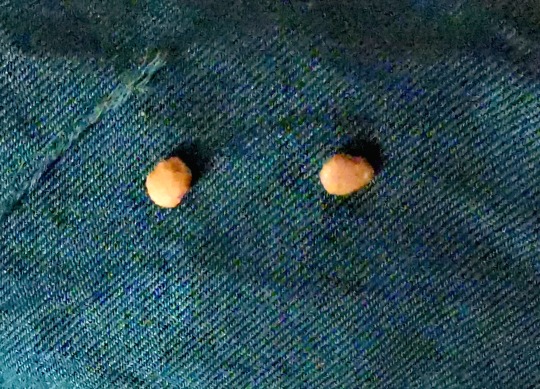
Since I incubated these two little manDRAGOre eggs, the river of dreams has been in flood.
1st night, I dream of him as a woman, I'm a man, I lose control of the car, ah😅
2nd night, I dream that I go back through rotten times carrying myself under my arm, the very pleasant thing.
3rd night, LA TOTALE : a female form dressed in black from head to TOE, insectoïde-like, which brings me before roaring water, a waterfall as powerful as a Titan, flat rocks floating on it. And then I have the whole range between going back in time and hello Spirits.
Depuis, plus rien.
Je me lève à 3am dans deux jours et j'enchaîne une journée de travail ensuite. Ai-je vraiment encore l'âge de ces conneries.?
6 notes
·
View notes
Text
israelis stay deranged asf





#'war days' .... nurse !!! she's escaped again#somebody ac get these weirdos to a psychiatric facility bec they r a threat to society#free palestine#palestine#gaza#long live palestine#glory to the martyrs#from the river to the sea palestine will be free#long live the resistance#death to israel#theyre soooo oppressed awie
5 notes
·
View notes
Text

2011 Paris, psychiatric nurse on strike
#2011#paris#nurse#psychiatric#strike#photography#leica#colorphotography#photooftheday#photographylovers#streetphotography#original photographers#pierre wayser
8 notes
·
View notes